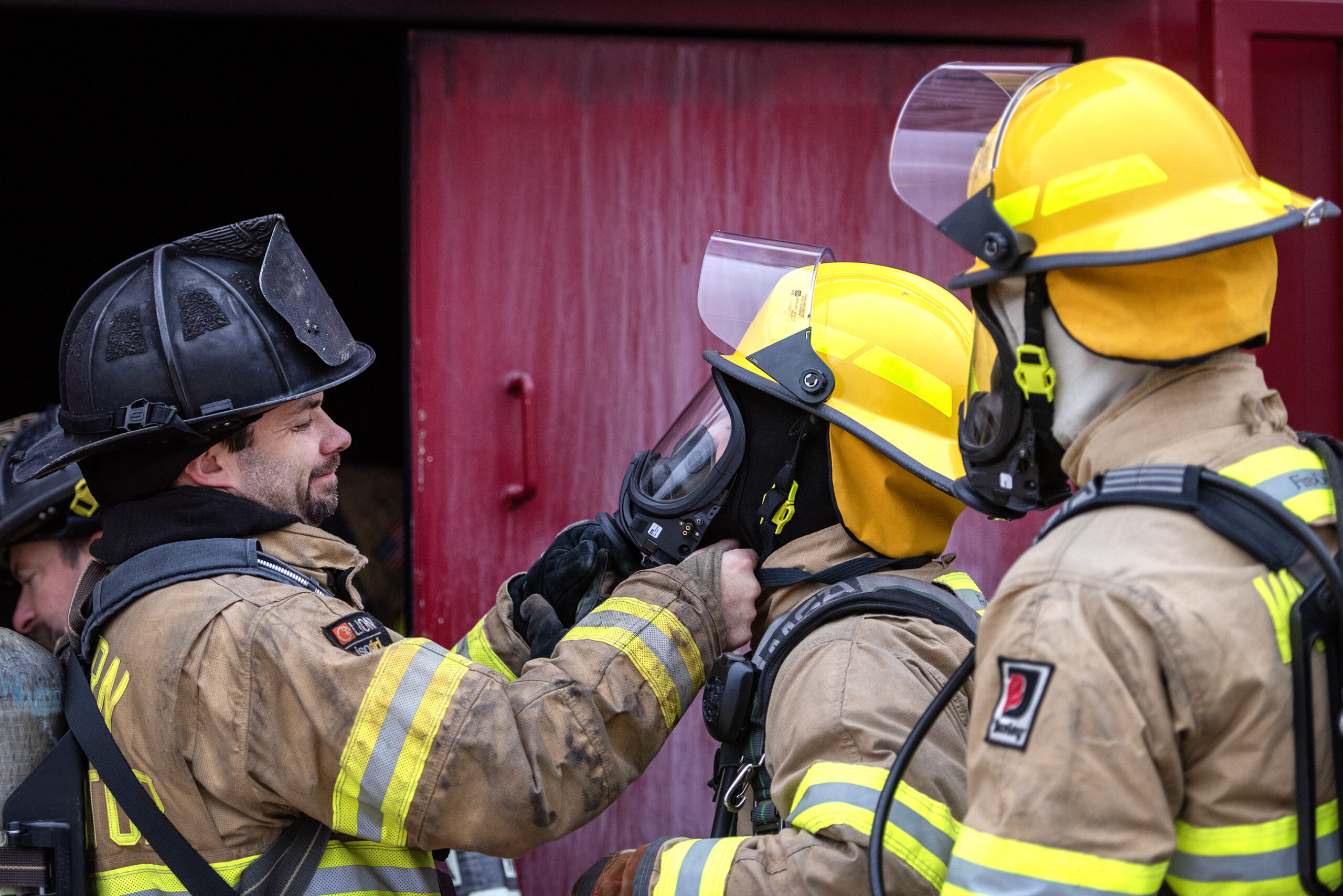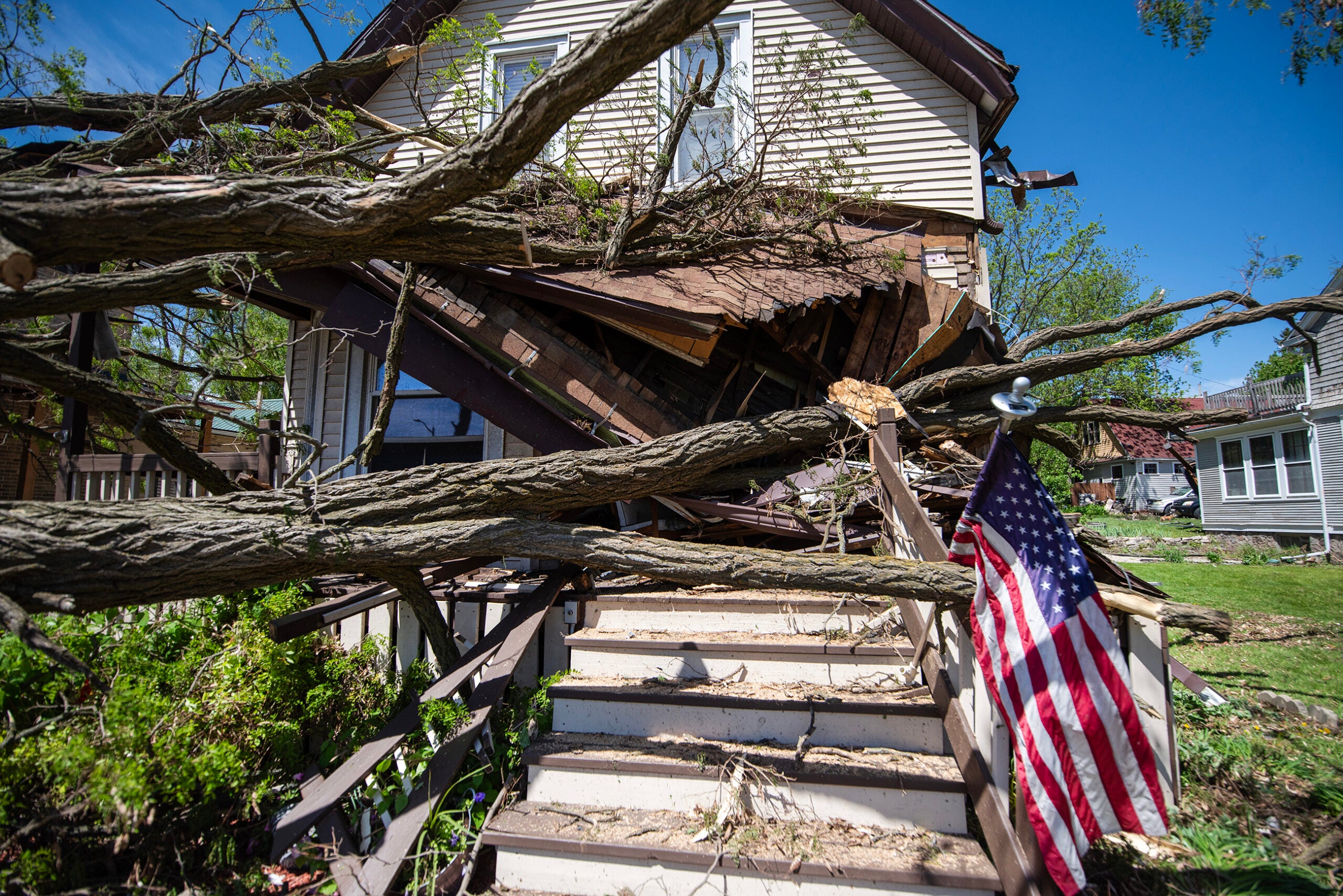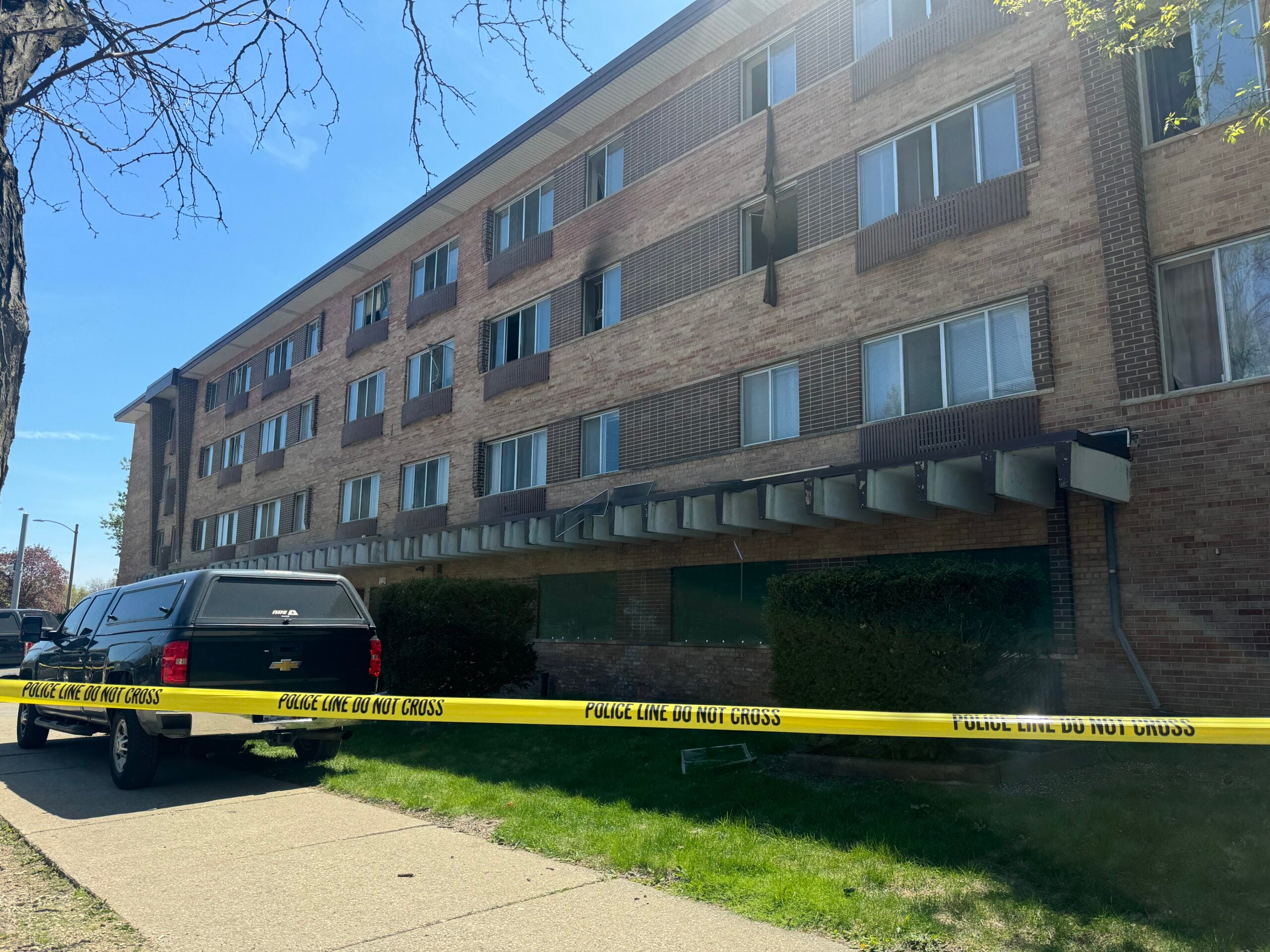As 2024 approaches, the heads of police and firefighting services in two western Wisconsin communities are looking ahead with concern.
Like the leaders of other rural first responders, Galesville fire Chief Lucas Teska and Cadott police Chief Daryl Pries are feeling under pressure from staffing and funding shortages. Each chief recently appeared on WPR’s “The Morning Show” to discuss their challenges.
“Unfortunately, there are several calls that go unanswered during daytime hours,” Teska said.
News with a little more humanity
WPR’s “Wisconsin Today” newsletter keeps you connected to the state you love without feeling overwhelmed. No paywall. No agenda. No corporate filter.
Teska asked the Galesville City Council in September to expand the community’s fire chief to a full-time position. Teska oversees five volunteer firefighters as a part-time chief. He said his other full-time job requires about 30 to 40 hours a week. The council has yet to issue a decision on Teska’s request.
In Cadott, police Chief Daryl Pries said he oversees five officers even though the agency is authorized by village leaders to employ up to nine officers. Pries said the positions are being left vacant due to retention. He expects additional budget cuts next year would further affect police services.
A March report by the Wisconsin Office of Rural Health found 40 percent of the state’s EMS agencies had experienced service gaps in a 12-month period. The agencies anticipated seeking additional funding to fill service gaps, such as through voter referendums.
Pries is fundraising in Cadott this winter to place automated external defibrillators in Chippewa County squad cars to help officers respond to heart attacks. Pries said 46 units are needed. So far, the effort has raised $20,000 of its $75,000 goal.
“I’ve conducted CPR on people that have not made it, and I’ve conducted CPR on people that have survived. We don’t always have the luxury of having an EMS crew here,” Pries said.
Galesville and Cadott both rely on emergency support from nearby agencies, the chiefs said. The village of Cadott is a few miles from the city of Stanley, so officers can share a shooting range and K-9 training course, Pries said.
“We go out there and do combined department shoots qualifications. I know Stanley has a training course set up out there for canines,” Pries said.
Galesville has mutual aid agreements with firefighting services in the villages of Trempealeau and Ettrick, Teska said. Galesville received a dozen requests for assistance from neighboring agencies this year, which is seven fewer than the previous year, he said.
Pries said staffing is a big concern among law enforcement across the state. Hiring and retaining quality candidates is a challenge, he said.
“It’s become such a cutthroat profession. It’s fighting for quality employees and employee retention and finding that the employees are really going where the money is and a lot of times that’s bigger municipalities,” Pries said.
The Wisconsin Department of Revenue estimates Galesville will receive more than $427,000 next year in state aid payments, known as shared revenue, for funding local government services. Cadott is expected to receive more than $300,000 next year.
Teska said the state aid from shared revenue should go toward creating a full-time fire chief in Galesville, so city officials could avoid raising taxes.
“If they were put towards a full-time position or things like that, you can do that without raising the taxpayer’s taxes — property taxes. I think that would be huge, because in our community, a lot of people consider our taxes to be pretty high,” Teska said.
When state lawmakers this year approved increasing state aid payments for local government services, they included new limits on how the money may be spent. Communities must maintain staffing levels for law enforcement, fire and emergency medical services or face funding cuts. Even so, Pries worries the limits could allow communities to direct additional funding to public works services rather than police or firefighting.
Teska said Galesville will likely merge firefighting services with another community’s agency in the next five to 10 years due to staffing challenges and the cost of firefighting equipment. In the meantime, Teska hopes the city approves a full-time fire chief to work on recruitments for the future.
“That would be the biggest thing that I would like to accomplish more than anything else,” Teska said.
Wisconsin Public Radio, © Copyright 2025, Board of Regents of the University of Wisconsin System and Wisconsin Educational Communications Board.






